Gaming Benchmarks
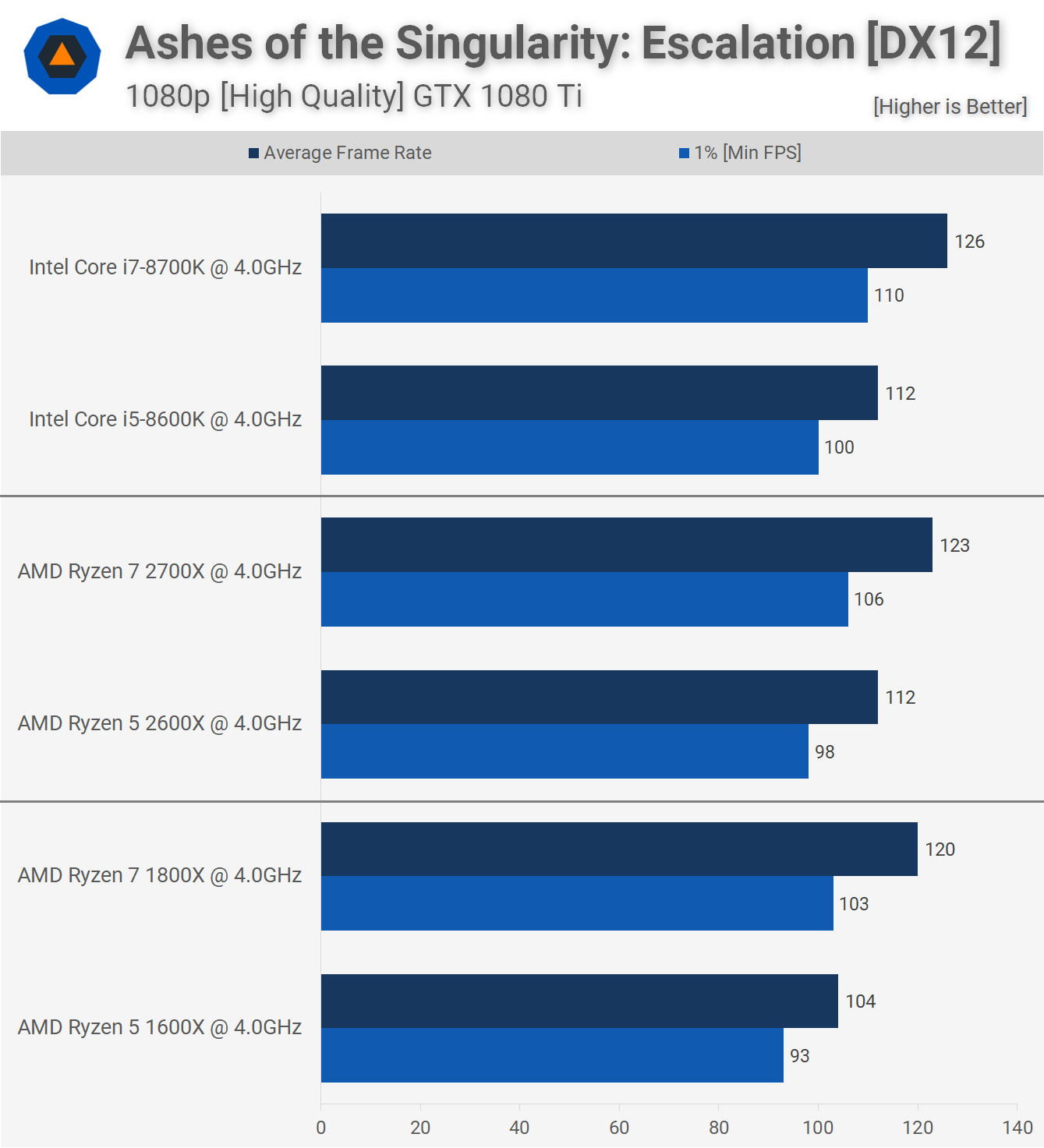
Okay so time for some gaming results and this is where it comes unstuck for AMD. As I've talked about in the past, Intel's low latency Ring Bus is simply better suited for gaming and we see this when comparing their own Mesh interconnect architecture designed for high core count CPUs. The Infinity Fabric suffers the same problem and it's not until gaming CPUs require way more cores that this problem will go away for AMD.
So while the 2600X improves on the 1600X by an 8% margin in Ashes of the Singularity, it's still a whopping 11% slower than the 8700K. The fact that Intel CPUs clock much higher blows this margin out by over 20% at times.
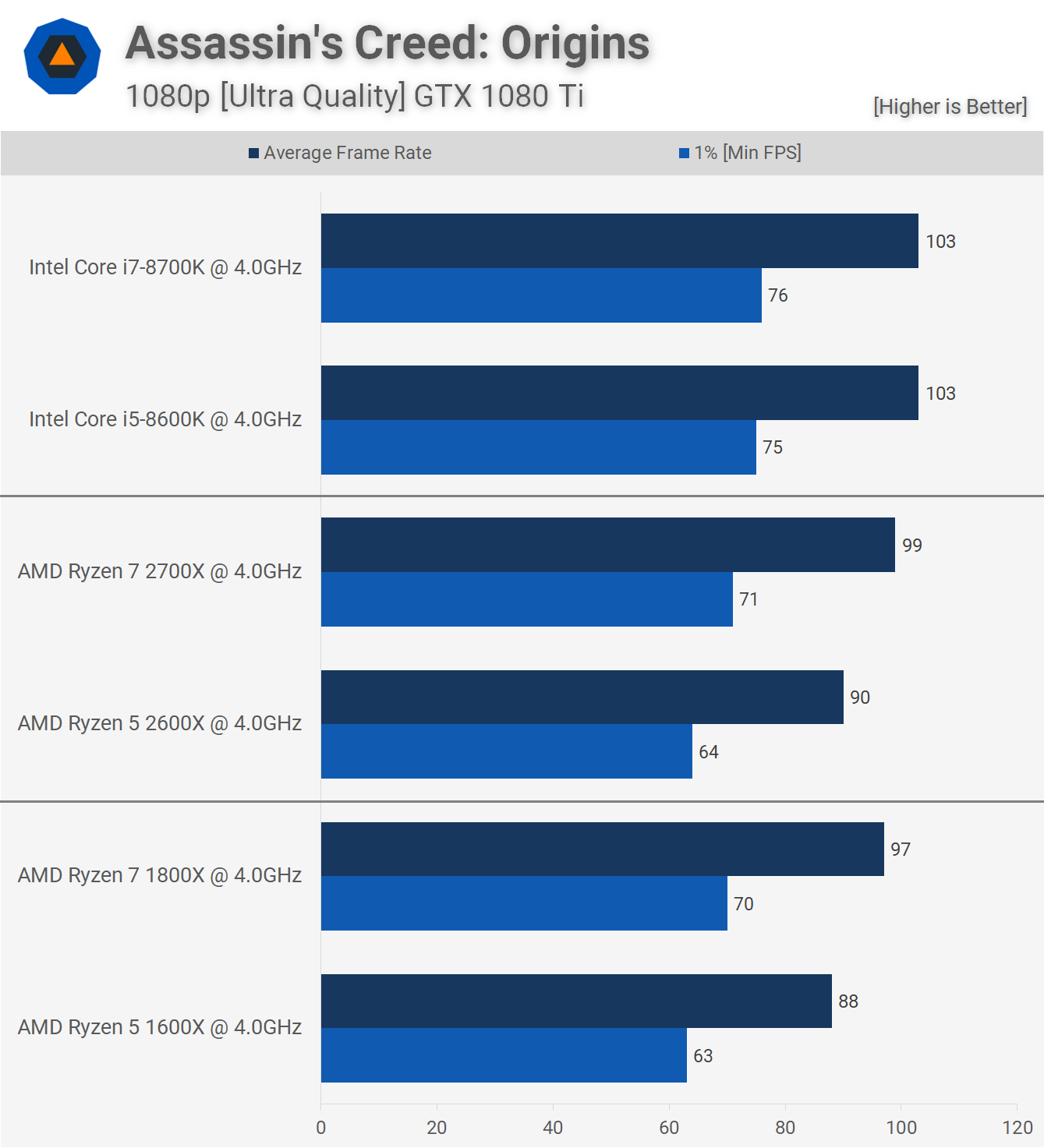
Moving to Assassin's Creed Origins, we see a mere 2% increase for the 2600X over the 1600X while the 8700K is a further 14% faster.
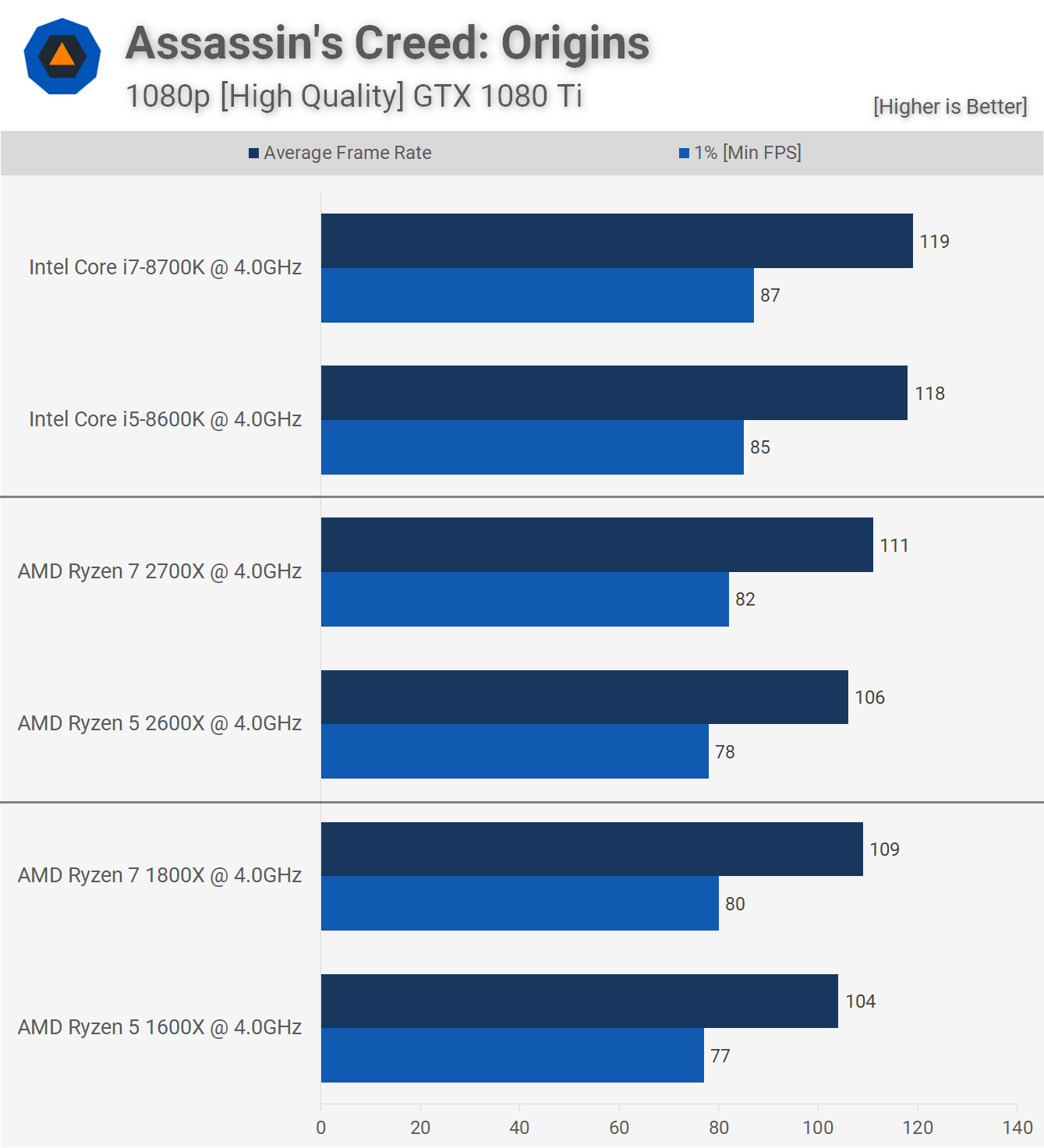
The margin is slightly reduced with the high quality preset but still the 8700K is 12% faster than the 2600X when comparing the average frame rate.
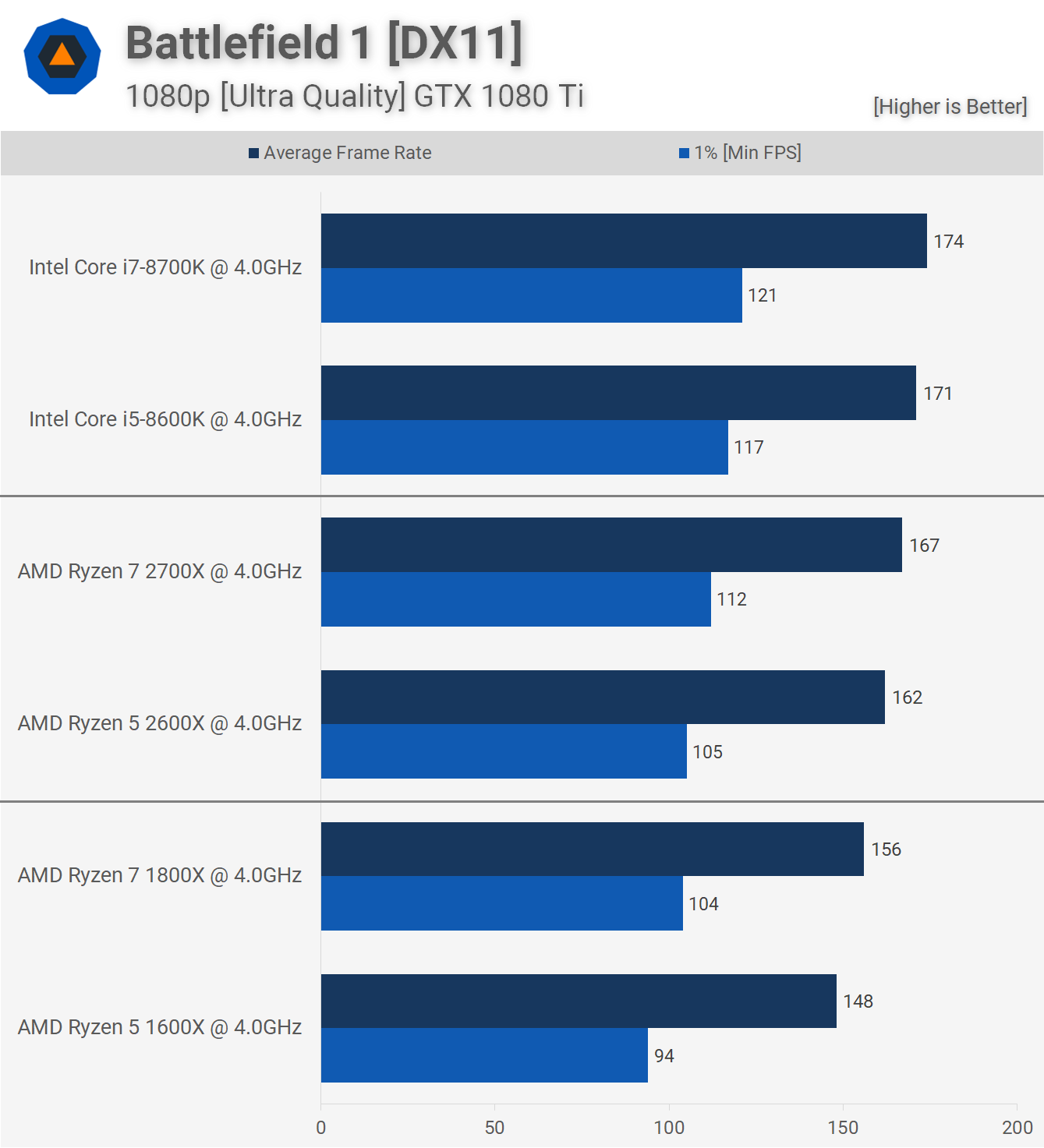
When testing with Battlefield 1 using the ultra quality preset we see that the 2600X is 9% faster than the 1600X but still 7% slower than the 8700K.
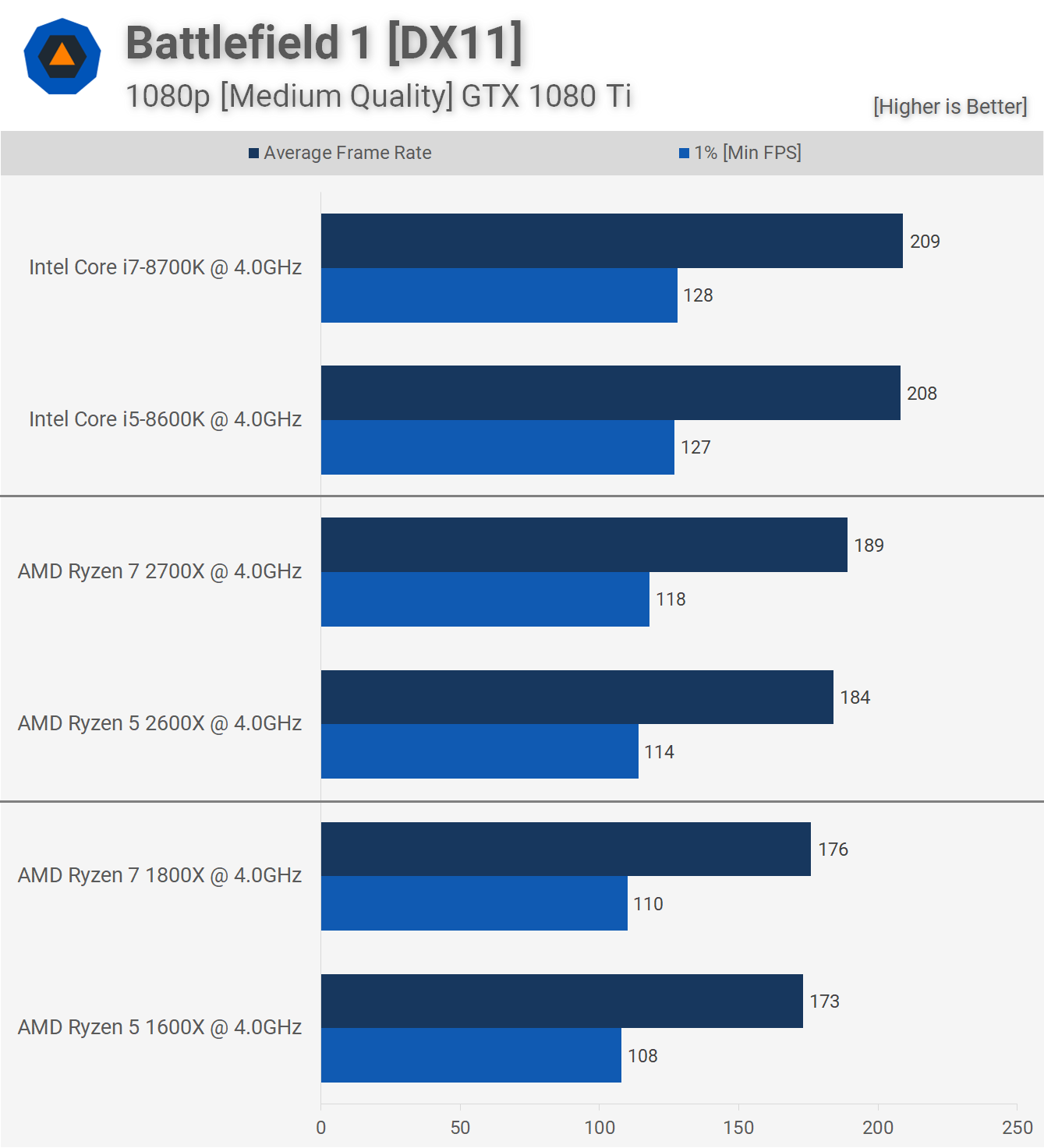
That margin is completely blown out with the medium quality preset as the GTX 1080 Ti is able to stretch its legs a little more. Here the 2600X again offered a 9% performance increase over the 1600X but it now 10% slower than the 8700K which still appears GPU limited.
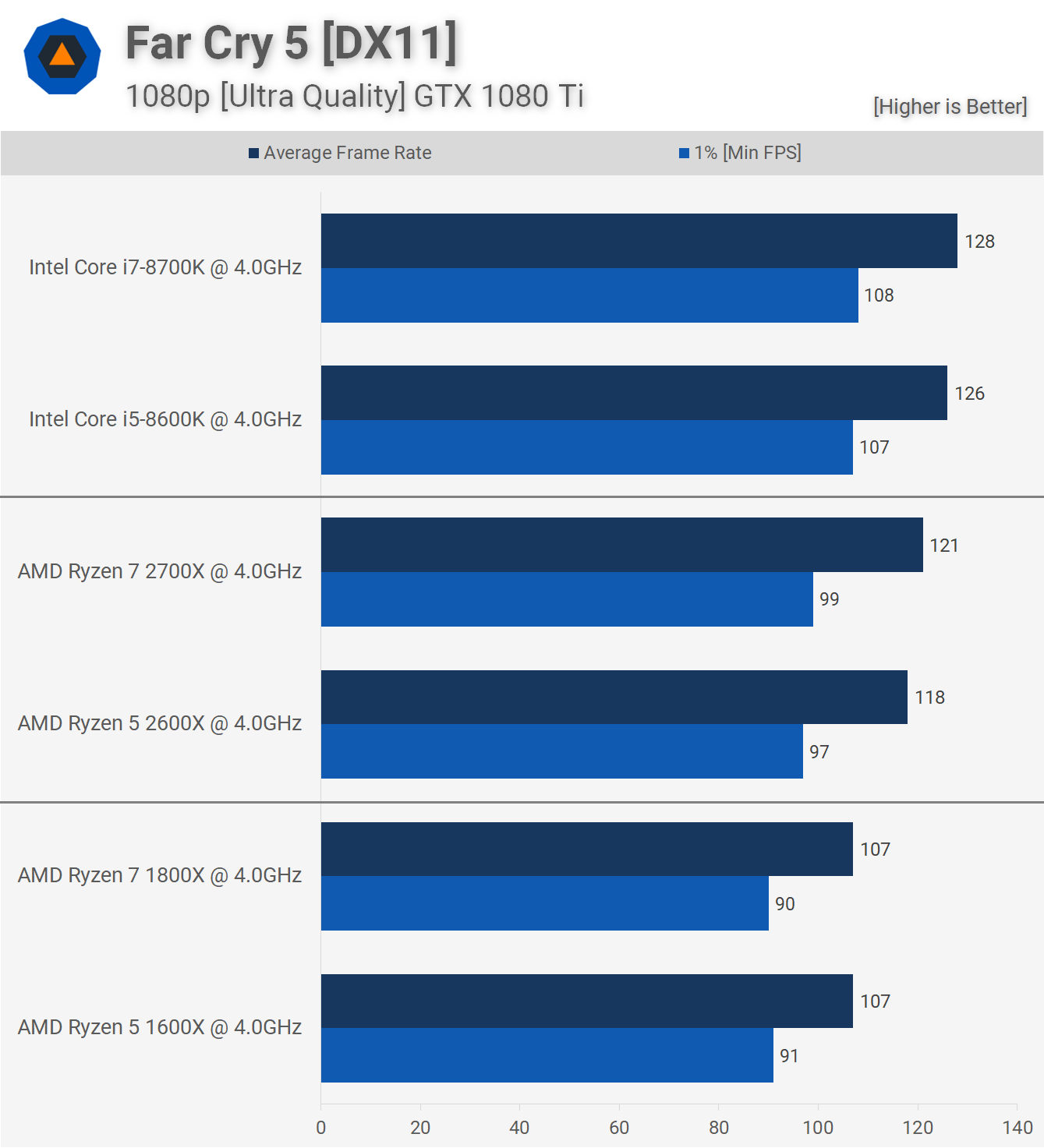
It's a similar story when testing with Far Cry where the 2600X is 10% faster than the 1600X, which is a huge improvement, but even so it's still 8% slower than the 8700K.
